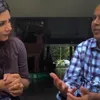Meet biotech startup Sapien Biosciences: India’s first commercial biobank that helps develop novel diagnostic tests and cures
Biotech startup Sapien Biosciences became India’s first commercial tissue collection biobank. Sapien hopes to build a high quality bio-repository with ethically consented human samples that will be used to develop and deliver diagnostic applications to further medical innovation.
Over the past few years, Indian startups have made great leaps in improving the country’s healthcare system. Medical innovation is one of these critical aspects of the system.
Tissue banking is an important part of innovation in healthcare. It is a process that collects medical waste and uses it for researching and developing new diagnostics, drugs, and reagents.
While the Indian market for tissue banking might not be as big as it is abroad, startups are slowly trying to change this trend. According to Zion Market Research, the global market for tissue banking is expected to reach $5.93 billion by 2022.
One such startup is Hyderabad-based biotech startup Sapien Biosciences.
Founded by Sreevatsa Natarajan, Jugnu Jain, and Prithi Rajan in 2012, Sapien Biosciences is India’s first commercial tissue bank.
Sapien hopes to build a high quality bio-repository with ethically consented human samples. These samples with medical, pathological, and diagnostic data, will be used to develop and deliver diagnostic applications to further medical innovation.
Leading the pack
Being the first may seem lucrative, but also has its own challenges, especially without the right support. While the Indian government has its own biobank, Sapien is the first startup to do this - without any outside funds.
“Typically, the government biobank caters only to academic centres like Tata Memorial and AIMS, etc. Somehow, they haven’t felt comfortable about giving it to a private enterprise,” says Jugnu Jain, Co-founder and CSO.

Jugnu Jain (right) in conversation with Shradha Sharma.
Before embarking on her entrepreneurial journey, Jugnu worked at a pharmaceutical company that used similar samples to validate its drugs. This experience helped her realise the tremendous demand in the market.
“There are more than 500 biobanks in the world, but India never focussed on it,” she says. This, Jugnu believes, is because India doesn’t do any novel drug discoveries or diagnostics development, and biobanks do not seem to have the same value as they do abroad.
“But companies outside India need these samples. So I came to India and took this leap with Sreevatsa,” she adds.
The ethical conundrum
Human tissue samples, just like human beings, have a certain dignity and privacy issue associated with it. In fact, the Indian Council of Medical Research (ICMR) has a set of guidelines for what biobanks can do, how tissue should be procured for science, and how ethical approval should be taken.
“If people come through us, we work with hospitals and take the customer through all these processes,” says the co-founder.
Biobanks also have ethics committees, which take care of samples that reach them. It is very important not to take shortcuts or avoid steps.
While these processes take a some time, Jugnu emphasises that it is critical to make sure that patient identity and dignity are protected.
She says this an issue in India right now and these guidelines - clarifying the role of biobanks and permissions they need to function - will help to grow the scope of startups like Sapien.
Who are the buyers?
While hospitals act as the source of tissue, the startup has a wide customer base. Its biggest market lies in drug companies, pharmaceuticals, and biotech companies that are looking to validate their molecules in actual patients.
The startup caters to diagnostic companies that are looking to attain samples of different diseases to validate their diagnosis using actual patients.
It also serves companies that make reagents for life science companies and need tissue samples to validate them.
However, the co-founder believes that a new crop of customers will join the club - data companies who are hungry for big data like Microsoft and Google that need data to develop intelligence.
The next step
“In our sixth year now, we have reached sustainability after a lot of heartaches and bootstrapping,” says Jugnu.
She adds, “This is a market of more than 250 billion, growing at a CAGR of more than 20 percent year after year, and I feel we just started scratching the surface.”
Sapien is looking at two ways to scaleup its business - revenue and customer validation.
“We are talking to investors to raise funds. Currently, we’re in eight hospitals and we wish to reach at least 50 in the next five years,” she says. The startup also hopes to grow country wide.
Watch the full interview here.
(Edited by Saheli Sen Gupta; video by Urmi Chatterjee)








